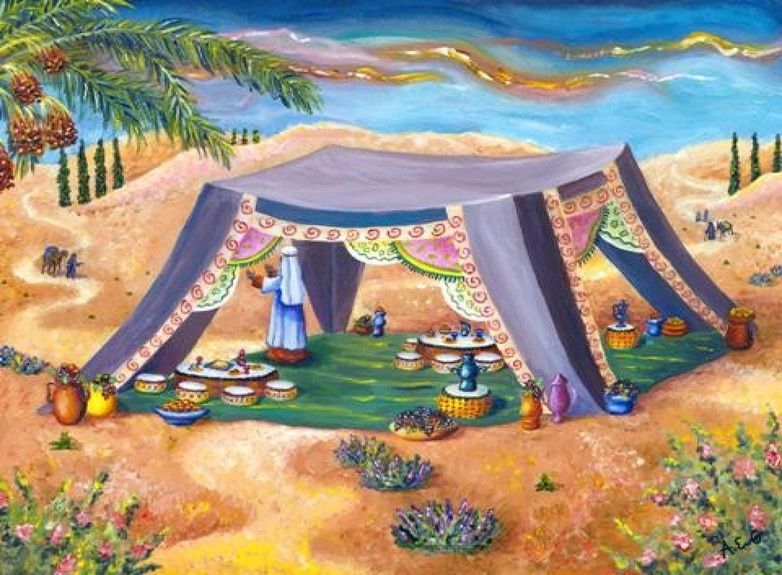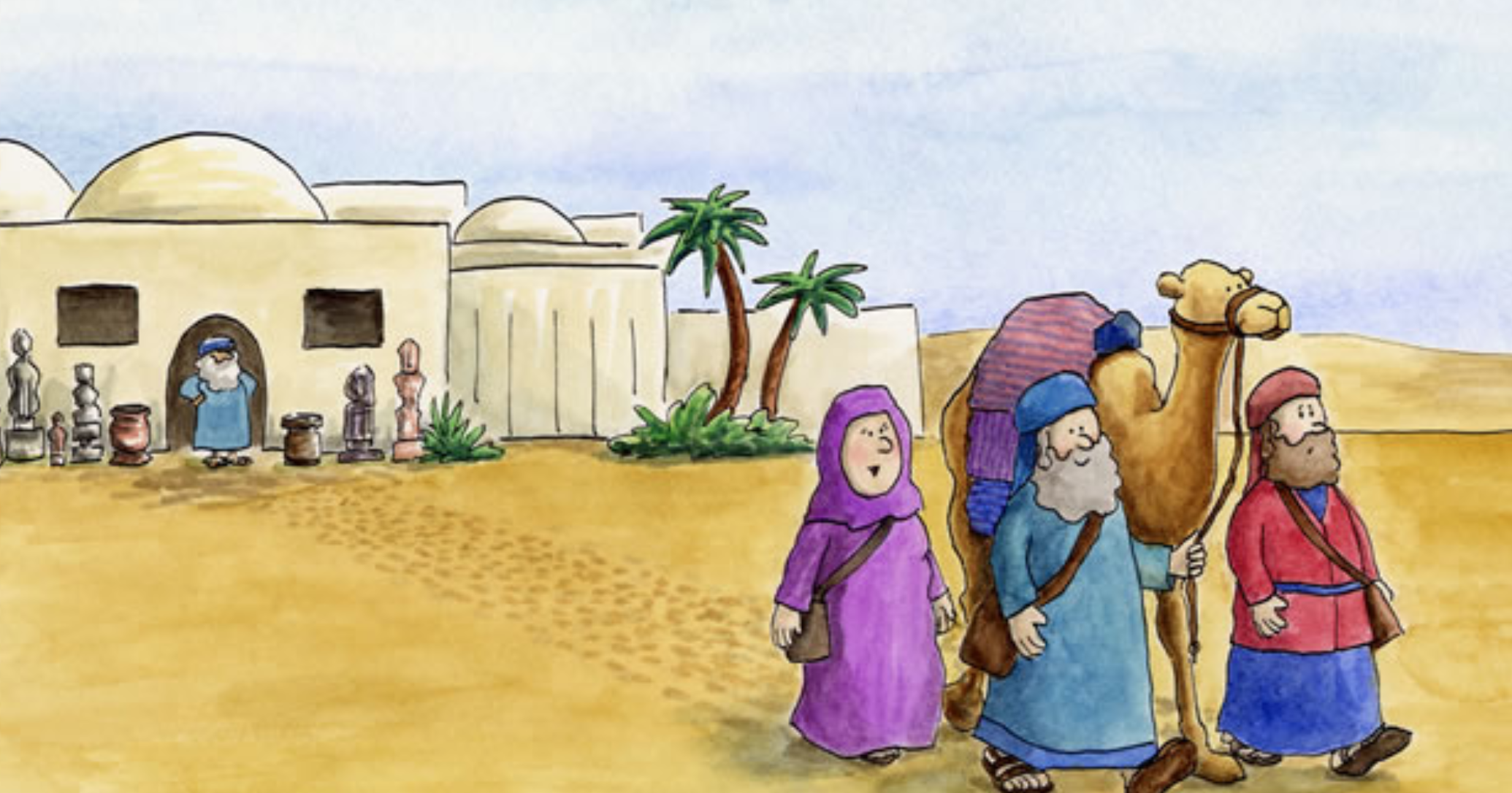Bonjour / Hello [nickname_else_first_name],
Table of contents
1) Perashat Hashavoua - Rabbi Eli Mansour
2) Halakhat Hashavoua (Halakhot related to day to day life)
LAws of the Synagogue - Hazzan David Azerad
3) Holy Jokes!
1)PERASHAT HASHAVOUA
This Week's Parasha Insight with Rabbi Eli Mansour
Parashat Vayera- Lot’s Delayed Escape From Sedom
The Torah in Parashat Vayera tells the well-known story of the destruction of Sedom. Two angels were sent by G-d to rescue Lot – Abraham Abinu’s nephew, who had chosen to live among the wicked people of Sedom. The angels instructed Lot to leave the city with his wife and daughters, but "Va’yitmahmah" – he "tarried" (19:16). Finally, the angels grabbed Lot, his wife and his two unmarried daughters, and brought them outside the city.
Rashi explained that Lot tarried because he wanted to first collect his money and possessions. He was a wealthy man, and did not want to leave the city without his belongings.
The Nahalat Yaakob (by Rav Yaakob Lorberbaum of Lissa, author of the "Netivot," 1760-1832), raises the question of how Lot could have possibly thought to delay his escape from Sedom for the sake of his money. Why would he risk his life by remaining? If somebody heard that a bomb would soon be exploding in the building where he was currently situated, he would immediately flee for his life; he would not take an extra few minutes to gather his belongings. What was Lot thinking?
The Nahalat Yaakob explains based on the Midrash’s comment that Lot was rescued from Sedom because of the two "pearls" that would emerge from him. After the destruction of Sedom, Lot’s wife was killed, and Lot and his two daughters found temporary residence in a cave. Assuming that the entire earth had been destroyed, Lot’s daughters made the drastic decision that they needed to cohabit with their father in order to conceive and perpetuate the human race. On two successive nights, they gave their father wine, he became inebriated, and they had relations with him. They conceived and gave birth to Amon and Moab, who founded nations known by these names. The nation of Moab produced Rut, who joined Am Yisrael and became the great-grandmother of King David. Amon produced Na’ama, who married King Shlomo, and whose son, Rehabam, continued the chain of the Davidic dynasty. This is why Lot was rescued from Sedom – because of these two righteous women who would join Beneh Yisrael, and from whom the Mashiah would descend.
The Nahalat Yaakob explains that this is why Lot was not worried about delaying his departure. He assumed that the city could not be destroyed as long as he was present, because he was needed. Knowing that he was destined to beget two woman who would produce Mashiah, he felt confident that he would survive, and so he took his time.
The Nahalat Yaakob adds that this is why the cantillation note above the word "Va’yitmahmah" is the unusual "Shaleshelet" note. The word "Shalshelet" means "chain," and thus alludes to a legacy, the chain that descends from a person. The "Shalshelet" appears in three other times in the Humash, all in contexts relevant to a chain of descendants. It appears in the context of Eliezer’s search for a wife for Yishak Abinu (Bereshit 24:12), when he was entrusted with the task of finding a woman with whom Yishak would build the Nation of Israel. Later, a "Shalshelet" appears over the word "Va’yema’en" which speaks of Yosef’s refusal to have a relationship with his master’s wife, who desired him (Bereshit 39:8). Yosef rejected her advances because of the "chain" of righteous individuals who were destined to descend from him, such as Yehoshua. Finally, a "Shalshelet" appears in the context of Aharon’s sacrificing the sin-offering through which he earned atonement for the sin of the golden calf, and became worthy of establishing the family of Kohanim (Vayikra 8:23).
The Nahalat Yaakob explains that this is why the "Shalshelet" note appears also here in the story of Lot’s delayed departure from Sedom. He felt comfortable taking his time because of the "Shalshelet" that he knew would descend from him.
Of course, Lot was wrong. Although he was being rescued on account of these two "pearls," Rut and Na’ama, Jewish destiny did not actually depend on him. The souls of these two righteous women were within Lot’s daughters, and G-d could have arranged for them to propagate through a more conventional union. Regardless, the angels had compassion on Lot and took him by the end, bringing him out of the city in order to save his life.
2) HALAKHAT HASHAVOUA
Halachot are selected and Translated by Hszzan David Azerad
The Laws of Synagogue, according to the rulings of Rabbi Obadiah Yosef ZT”L
What Mitzvah can one fulfill before entering the synagogue?
It is a mitzvah to run when going to the synagogue, as well as any other Mitzvah, as it is said: "One must pursue the knowledge of God", and even on Shabbat one must not tread lightly. All the more so that one must be careful not to stand in the middle of the road to talk with his friend about some of his own things, because by doing so he is likely to be late for the synagogue.
In what way is it appropriate to enter and leave the synagogue?
One must not enter the synagogue running, but will stop at the entrance and walk in reverence as he enters before the king.
A person leaving the synagogue is not allowed to run or take big steps, which shows that the synagogue is like a burden on him, but if he leaves the synagogue in order to return, he may run in order to hurry back, even though that others are looking at him do not know the reason he is running, as well as the one who leaves the synagogue to walk to another synagogue, he is allowed to run from the synagogue immediately, and he does not have to wait halfway in order to start running .
Bevirkat Shabbat Shalom Umevorach
David Azerad
3) HOLY JoKeS!!
Selection of funny snippets, loosely related to this weeks parashah or current events, to brighten your day
The grass is always greener on the other side










